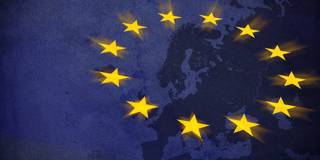As the nominee to serve as the EU's next High Representative for Foreign Affairs and Security Policy, Spanish Foreign Minister Josep Borrell will have an opportunity to update Europe's approach to foreign policy. Chief among the challenges facing the bloc is to reassert its own sovereignty in an age of great-power politics.
BERLIN – The last five years have not been kind to the European Union’s foreign-policy prospects. A new great-power competition is shunting aside the international rules-based order, and aspects of globalization – from trade to the Internet – are being used to divide rather than unite countries. Meanwhile, the EU’s geostrategic neighborhood has become a ring of fire.
These challenges mainly reflect a shift in the global balance of power, which has fundamentally changed the United States’ foreign-policy outlook. As the European Council on Foreign Relations explains in a new report, global developments have left EU countries increasingly vulnerable to external pressures preventing them from exercising sovereignty. Such exposure threatens the EU’s security, economic, and diplomatic interests, by allowing other powers to impose their preferences on it. Making matters worse, the EU’s governing institutions have done little to overcome the divisions among member states, and they have not played a relevant role in responding to crises such as those in Ukraine, Syria, and Libya.
With the nomination of Josep Borrell to serve as High Representative of the Union for Foreign Affairs and Security Policy, the EU has an opportunity to relaunch its foreign policy. Currently the foreign minister of Spain – itself one of the EU’s new power centers – Borrell’s task will be to unite EU institutions and national foreign ministries behind a common EU-level foreign policy.

BERLIN – The last five years have not been kind to the European Union’s foreign-policy prospects. A new great-power competition is shunting aside the international rules-based order, and aspects of globalization – from trade to the Internet – are being used to divide rather than unite countries. Meanwhile, the EU’s geostrategic neighborhood has become a ring of fire.
These challenges mainly reflect a shift in the global balance of power, which has fundamentally changed the United States’ foreign-policy outlook. As the European Council on Foreign Relations explains in a new report, global developments have left EU countries increasingly vulnerable to external pressures preventing them from exercising sovereignty. Such exposure threatens the EU’s security, economic, and diplomatic interests, by allowing other powers to impose their preferences on it. Making matters worse, the EU’s governing institutions have done little to overcome the divisions among member states, and they have not played a relevant role in responding to crises such as those in Ukraine, Syria, and Libya.
With the nomination of Josep Borrell to serve as High Representative of the Union for Foreign Affairs and Security Policy, the EU has an opportunity to relaunch its foreign policy. Currently the foreign minister of Spain – itself one of the EU’s new power centers – Borrell’s task will be to unite EU institutions and national foreign ministries behind a common EU-level foreign policy.